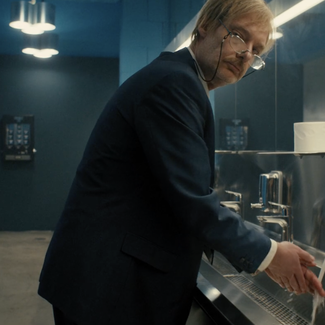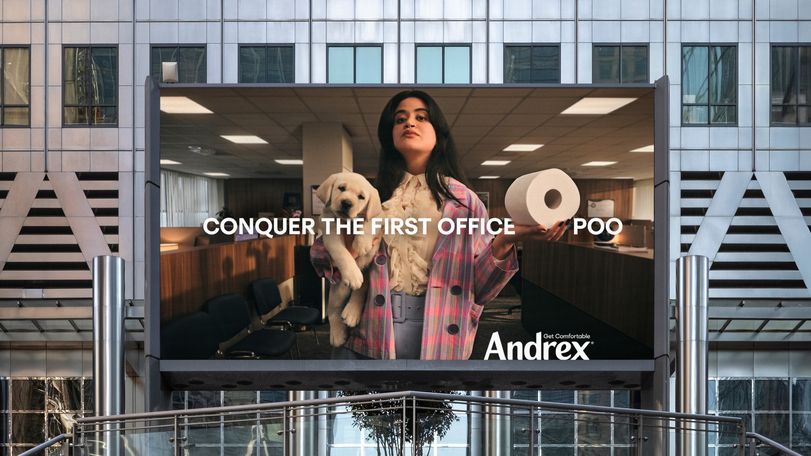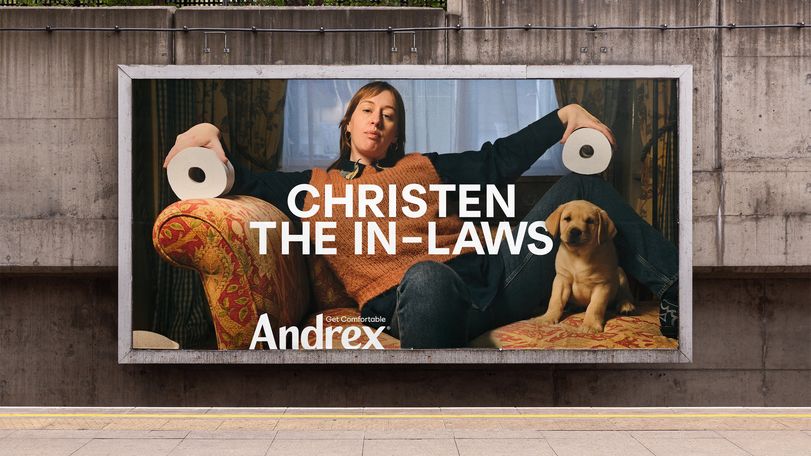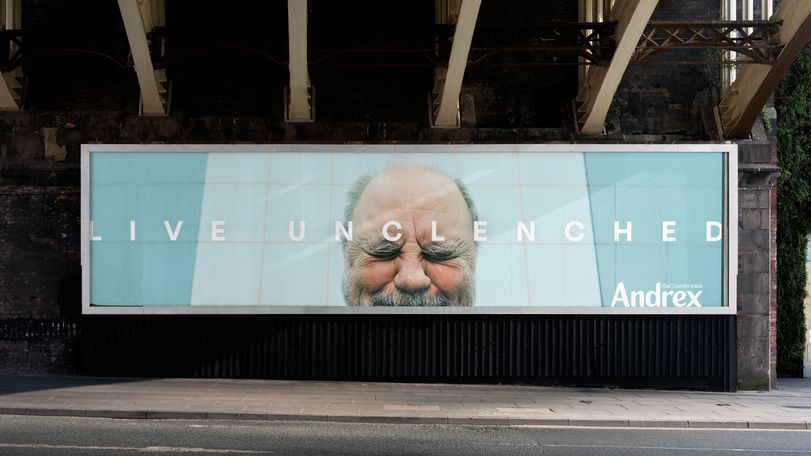
feature
Battling taboos: FCB London on how Andrex is challenging the category norms
We talk to FCB London's CCO Owen Lee and ECD/creative partner Kyle Harman-Turner about Andrex's new 'Get Comfortable' platform
03 April 2024
Since time immemorial commercials for lavatory paper have featured themes of ‘softness’, serenely clean bathrooms and lots of packshots. Andrex was probably the most famous advertiser in the category, with its long-standing labrador puppies used as icons of softness.
But, in a bold move, Andrex has dispensed with tradition and presented an all new take on loo roll advertising and our relationship with the act of going to the lavatory and overcoming any social embarrassment that comes with that.
Created by FCB London, Andrex has launched the bold new brand platform ‘Get Comfortable’ with the aim of dispelling lavatorial taboos.
At the heart of the platform is the insight that many Brits have an unhealthy relationship with their everyday bodily functions with half of the nation struggling with visiting the toilet at work and 41 per cent of us fearful of using the loo at the in-laws.
The campaign’s OOH activations and two spots, ‘First Office Poo’ and ‘Post Poo Euphoria’, tackle the issue of prudery and embarrassment about going to the loo by encouraging the nation to engage with their intimate wellness.
The campaign also seeks to normalise discussions around bowel health with a joint Andrex and Bowel Cancer UK VOD spot, entitled ‘Born Unembarrassed’, launching this month, which is Bowel Cancer Awareness Month.
The campaign is clearly a break with category norms - and one that asks us to reassess our current relationship with our bowels and going to the bathroom.
So what made the Kimberly-Clark-owned toilet tissue brand shift away from focusing on the soft nature of their products and its use of puppies? How did FCB London work with the brand to kick start a conversation among Brits about lavatory inhibitions? What does the ‘Get Comfortable’ platform hope to achieve? And how important is humour in helping to break down stigmas? To find out we asked FCB London’s chief creative officer Owen Lee and ECD/creative partner Kyle Harman-Turner about the new approach.
Creative Salon: Why and how did you come up with the idea to address taboos around going to the lavatory outside the comfort of your own home?
Owen Lee and Kyle Harman-Turner: Us Brits have a funny relationship with our bodily functions and it’s not healthy. As the UK’s leading toilet paper brand, Andrex had a responsibility to address a topic that causes so many issues. For instance, one in three of us won’t go to the toilet in public places including the workplace. A quarter of us actively avoid looking at our poo when we go to the toilet. More than a million hours of valuable teaching time are lost each year to teachers having to spend time cleaning up after kids’ accidents and the UK's survival rate for bowel cancer is 10 per cent less than other European countries.
CS: What does the new 'Get Comfortable' platform hope to achieve?
Lee and Harman-Turner: The truth is, too many people are putting up with poor toileting experience whether that’s using an inferior product, avoiding going when they need to go, and even putting off talking to their doctor if they think things aren’t right. If we can get people more comfortable with the topic, we will all have a healthier relationship with our bodies. Going to the toilet isn’t a choice, but being comfortable about it is. And the puppy still plays a key role in the communications, but rather than just signifying softness, it now triggers confidence.
CS: How did you work with Andex to execute the idea of busting loo taboos? What were the challenges in doing this?
Lee and Harman-Turner: Andrex were behind the idea from the start. They wanted category-busting work and had an ambition to get people to ‘confront their intimate wellness’. The really tricky bit was how we were going to have that conversation with people. We worked incredibly closely with each other to get the tone right. We knew 85 per cent of the public thought that going to the toilet shouldn’t be a taboo and were happy to confront the issue. But if you get too gross you switch people off, too tame and you are avoiding the topic. The key was to imbue people with confidence in a humorous way.
CS: What advice would you give to other creatives seeking to encourage bravery from their client?
Lee and Harman-Turner: We should start by banning the word ‘clients’ and replace it with ‘partners’.
‘Clients’ suggest that they’re outsiders, who are there to be ‘serviced’, rather than standing side-by-side to push towards greatness together.
Our partners at Andrex have not only understood their responsibility as category leaders to stand for something bigger than generic “softness metaphors" - but have actively encouraged us to take things further.
We’ve had some truly beautiful moments together where our partners are actively encouraging edit options with less time on the logo if it means landing the right musical beat - not to mention many quality hours spent discussing the finer nuisance of what fart option to be applied onto the opening of ‘First Office Poo’.
CS: How important is humour in this campaign?
Lee and Harman-Turner: We’ve talked a lot about the importance of humour as a tool to disarm the conversation.
We carried out some research and it was really clear that Britain is suffering from a sense of ‘social constipation’ when it comes to going to the toilet. 47 per cent of Brits have held their poo at work. 48 per cent have held in poo, pee or fart to the point where it physically hurt them. 53 per cent have tried techniques to hide what they’re doing in the loo (e.g. fake coughing).
So, our job was to break down those stigmas - and if there’s one thing us Brits are good at, it’s taking the piss out of ourselves.
It would be really easy to turn the films into a vignette filled gag fest, but we were looking for something witty, not slapstick. In ‘First Office Poo’, the trade up of a magazine for something thicker is enough. Restraint is everything.
In OOH and print, we’ve used humour in different ways to open up conversations. In the business section of The Times we have a ‘Paid to Poo’ print ad that breaks down the economics of pooing at the office for ten minutes every day. It equals out to a full week of pay, pooing on company time. If that doesn’t get Britain comfortable, nothing will.
But all of this is part of a much bigger and very important conversation. On average, it takes Brits 60 days to overcome their embarrassment to speak with a GP about their bowel health. In that time, people aren’t dying of Bowel Cancer, they’re dying of embarrassment. If we can help to get one mum, dad, brother, sister, auntie or uncle to speak to their GP, then job done.









